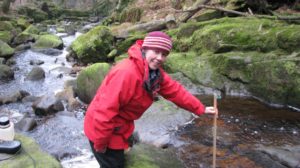
The latest iCASP Project, The Derwent Data Finder, will explore whether a collaborative monitoring system could help the Environment Agency to reduce costs and to gather more information. The Environment Agency currently spends 60 million pounds a year gathering information on the state of the water environment to meet regulatory requirements.
However, many other organisations, including iCASP partners and universities, also collect relevant data which if shared might fill existing knowledge gaps and prevent duplication.
The project will focus on the Yorkshire Derwent, one of five catchment ‘prototype projects’ that have been chosen by the Environment Agency to inform its national review of monitoring. The iCASP team will review the availability and efficacy of catchment data and how to make it more accessible. Academics, led by Paul Kay at the University of Leeds, will work with the Yorkshire Derwent Catchment Partnership to identify what surface water quality data and analysis exists, what monitoring is in progress and planned, and to assess the suitability of this information or monitoring approach for addressing catchment issues, such as run-off, sediment transfer, land drainage and sewage discharge. They will also consider whether innovative monitoring techniques and technologies could fill gaps in data as part of developing a monitoring plan for the catchment.
Building awareness of the research conducted by iCASP university partners and other iCASP partners, in relation to surface water quality, including water chemistry, freshwater ecology, geomorphology (including sediment) and in some cases groundwater and flow where they impact on surface water, is the first step towards getting the existing research base used.
Without this iCASP project, the Yorkshire Derwent Prototype might struggle to access information on the data that has been gathered by universities across the region, would not be able to do as much analysis of the utility and value of the existing data, nor explore the relevance of new methods used elsewhere in the UK and internationally.
